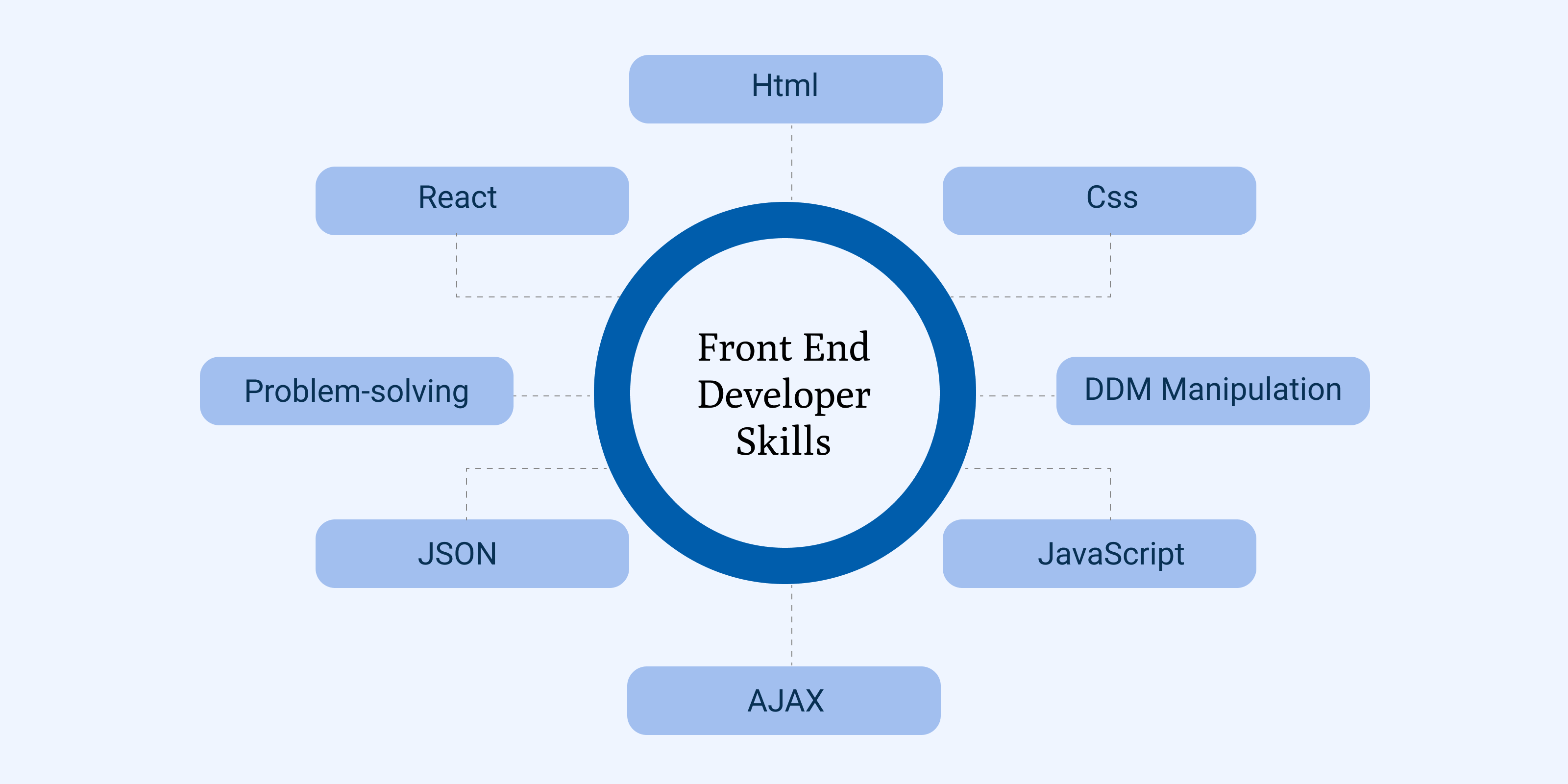Everything you need to know about offshoring software development
Business owners, IT heads, CXO-level executives, chief information or security officers, and even members from procurement or purchasing departments often hear about offshoring IT or software, customer service, and in some cases even operations and online marketing.
If done right, the benefits that offshoring offers are tremendous and can accentuate the output of internal teams and even entire departments internally.

Tracing the roots of offshoring as a concept

Jack Welsh, the former CEO of General Electric, was a huge proponent of American and Western companies offshoring their technical requirements to countries where the talent can provide far better value, while the company itself focused on strategic and business aspects to maximize profitability and shareholder value.
Arguably, this stance drew a lot of criticism, since this invariably meant massive job cuts, factory shutdowns, and a shortage of domestic employment options in the home country, but the benefits were far too lucrative for companies to ignore this opportunity back then, and Jack Welsh knew the power of effective delegation in a globalized world.
Even today, despite a few inherent risks, companies still choose to work with dedicated offshore teams in an unfamiliar country.
That being said, the IT or software offshoring landscape today captures a slightly different flavor.
While cost control continues to be the driving factor, companies globally generally outsource for a whole host of other reasons as well.
Tim Cook, CEO of Apple has best summarized this in a recent statement
"There's a confusion about China. The popular conception is that companies come to China because of low labor cost.
I'm not sure what part of China they go to, but the truth is China stopped being the low-labor-cost country many years ago. And that is not the reason to come to China from a supply point of view.
The reason is because of the skill, and the quantity of skill in one location and the type of skill it is the products we do require really advanced tooling, and the precision that you have to have, the tooling and working with the materials that we do are state of the art. And the tooling skill is very deep here.
In the U.S., you could have a meeting of tooling engineers and I'm not sure we could fill the room. In China, you could fill multiple football fields"
This is not only true in the case of large manufacturing but also in the case of software services, call centers, and even a whole host of professional services.
Many global businesses continue to offshore software development to access specialized talent, reduce overhead, and accelerate project timelines.
While the practice has evolved, the core reason remains the same: offshore teams can deliver strong technical outcomes while allowing in-house teams to focus on product strategy, growth, and customer experience.
Despite earlier concerns around control and communication, improved tooling, process maturity, and AI-assisted collaboration have made offshoring a practical and often preferred model for companies scaling up or entering new markets.
Outsourcing non-core aspects
- The development or coding aspects of building internal software or even external SaaS development services are probably not the core aspect of any given product.
- Companies find it far easier to hire only a few internal team members, generally product managers or project managers, who in turn work with the offshore company to develop the software or to manage the IT functions entirely.
- The partner offshore firm, by virtue of its pedigree and expertise in the field, will be best equipped to advise and carry out technical work for the client, resulting in far better decision-making, robust software, and quicker delivery.
- Moreover, with the rise in globalization and technology, even small teams with little to no technical expertise can build world-class, digital-first SaaS companies.

What started as a cost-saving exercise by large conglomerates has resulted in a system that empowers small and medium businesses in the developed country by removing entry barriers and making high-quality software development much more accessible.
To access superior talent at scale
- Over the last few decades, the software offshoring industry has had a chance to mature globally, giving rise to "software hubs," especially in countries where the government push to upskill and train employees has been encouraging.
- This has resulted in some countries emerging as a go-to choice for finding an offshore partner that can provide a dedicated software team for development purposes.
- For instance, countries like the Philippines, India, Poland, Ukraine, and Argentina tend to have a far larger pool of technically skilled talent.
- In the case of India, where my company, Code-B Technologies, is based, a state-wide push to grow technical talent gave rise to a swathe of engineering colleges and technical talent that has allowed this industry to scale beyond imagination.
Cost control
- An obvious driving factor, and this wildly varies depending on where one would choose to outsource their next project.
- Some countries, by virtue of the supply and cost of living, are bound to offer far more value when compared to others.
- Even within the same country, you're likely to see quite a huge disparity in costs, depending on the size and quality of the offshore team, track record of successful projects, and even where they are based out of.
- For instance, in India, an IT company in Bangalore may very well be more expensive when compared to an offshore team based in any tier-2 town like Surat or Hyderabad.
What kind of software services are outsourced?
Given its remote nature, almost all software services are offshored globally. Companies used to avoid offshoring core aspects of their business but that has begun to change quite a bit in recent years, thanks to robust security controls and streamlined compliance processes
Some of the software or IT services that are outsourced can be found below.
Front end development
- Web Development and web languages like CSS, HTML, Javascript.
- Designing software, applications and websites, their visual aspects, design elements and how they interact with each other.
- ReactJS, Vue, Flutter, Meteor, React Native, NPM, Flutter and Bootstrap are a few front end technologies that are popularly offshored .

Back-end development
- This includes server-side development, building advanced logic, and back-end architecture.
- Database management, logic, building APIs and their processes, etc., are all part of backend development.
- Development in MongoDB, Python, NodeJS, SQL, Ruby-on-Rails, Django, Laravel, C#, and Java are some of the popularly offshored backend solutions.

Cloud computing
- Quick Fact - Almost 50% of corporate data is stored in the cloud. Cloud enables companies to access data, files, and services via the internet, and the demand for this has grown quite a bit in recent years.
- Building a cloud architecture, functions, APIs, Infrastructure as a Service (IaaS), Platform as a Service (PaaS), and SaaS tools are a few services that are offered.
- Development on AWS, Azure, Cloudflare, IBM Cloud, and Digital Ocean are a few services that offshore partners periodically take up.
Machine learning & AI models
- The recent breakthroughs in generative AI and machine learning models have spurred a demand from companies looking to blend this technology into their current offerings, operations, or processes.
- Building the architecture for machine learning models, training them using data, building neural networks and tasks around NLP, reinforcement training, etc., are projects that offshore companies have begun taking up.
- Offshore companies work with libraries and technologies like TensorFlow, PyTorch, and Python and a combination of cloud computing and back-end development technologies to deliver machine learning projects.
We've been noticing an influx of requests from companies looking to setup dedicated offshore AI teams with our support as we continue to scale this vertical.
Database building & analysis
- Making informed decisions is some of the leading priorities, and data is the backbone for making this possible.
- Scraping data from various sources, building out database architectures, and visualizing and analyzing data for actionable insights and outcomes are a few examples of data-related services that these companies offer, with decisions often hinging on tool choices like SQL and R based on project needs.
UI/UX Services
- Often misunderstood and invariably associated with "design services," UI/UX services have gained a lot of importance in recent times, and they encompass a wider range of tasks.
- User experience maps out every tiny detail in the customer journey and weighs these details against their alternatives to provide best-in-class user experience and also profitability.
- This includes the interface design, color schemes, process flows, interaction types, and responsiveness.
- For larger companies, UI/UX turns out to be an important role and is generally subsumed within the fold of product management.
- Building prototypes on Adobe Figma files and designing on XD files or Canva are a few technologies that UI/UX professionals at offshore IT companies are familiar with.
- Several UI/UX designers, including the ones at Code-B, are also familiar with web analytics and in-app analytics that help them map out user behavior, undertake A/B tests, and make informed decisions while incorporating features.
Service models
Given the unique engagement models that companies seek, depending on their software or IT requirements, most software companies offer multiple offshoring service models that companies can choose from.
From hourly engagement, build-operate-transfer, and dedicated teams to even accentuating internal teams, offshore software development companies are generally quite flexible to custom engagement models as well.
But generally, most engagement models are from the ones I've mentioned below
Dedicated resources
In this arrangement, your requirements will be mapped out after taking a few aspects into consideration, namely, expected delivery date, tech stack required for project completion, specific features, requirement for prototyping, etc.
Based on which, the company will either assign the right internal resource, either a junior or a senior, at a fixed hourly rate.
To effectively track the tasks and progress, a timesheet or similar mechanism will be shared with the client on a weekly or bi-weekly basis .
Build, operate, Transfer
A working model that is popular not just in software but also across the board. Build, operate, and transfer (or BOT) projects are also quite popular as an offshoring model.
Generally, a prototype of the final software is created that is a near-replica of the proposed software; once the features, etc., are finalized, the team begins development of the project and also assists with migrating the application or software to the client's server
Pay-as-you-go or subscription models
Although full-service IT companies rarely employ this model, it is a practice frequented from time to time.
Several IT firms begin developing niche expertise, and this invariably means that many of them "productize" a service that can be replicated for multiple clients at a great value.
DevOps, front-end, back-end, and database management are a few software tasks that can be managed by using this model.
Projects with a ton of routine maintenance and upkeep of software services tend to work under this model.
When do companies offshore software development?
Having been in the industry for 9+ years now, I have a fairly strong understanding of pretty much all the cases when a company does and should opt for offshoring their programming and development workflows.
Conversely, there are also quite a few cases where a company may want to rethink whether offshoring is really the best move.
Tight budget but adequate development work
This can include new bootstrapped SaaS companies, seed-funded or Series A- or B-funded startups, and even larger established companies looking to set up separate verticals or new business lines.
Without a proof-of-concept or a business venture but a fairly large service requirement, these companies will find offshoring to be quite cost-effective and scalable.
Large volumes of development effort
For any type of firm with large IT requirements, front-end, back-end, database management, and DevOps requirements, offshoring is always a good idea.
The extent of offshoring the work can be arrived at after reviewing sensitive accesses and core aspects of the product.
But this is THE best way to accentuate the productivity of internal teams, enhance their capabilities, bring them up-to-speed with modern alternatives, and above all else, reduce software and IT costs by as much as 75%
This is not just a number pulled out of the bag; we have achieved this exact number for 5+ clients so far and its a win-win for all the parties involved
Hiring is costly & time-consuming
Software projects tend to be complex with multiple moving parts and talent requirements that span front-end, back-end, DevOps, cloud computing, hardware, machine learning, and UI/UX workflows.
While full-stack developers with multi-discipline skill sets can take up projects like these, it's generally far more efficient and effective to have subject matter experts manage each discipline in the best manner possible.
In developed countries, hiring local talent like this can be a huge effort involving a lot of hiring costs, both direct and indirect.
Offshore software partners have already solved for these problems by unlocking a ton of value in their hiring processes. The fact that there's an abundance of talent at affordable costs in the offshore country is another reason why you should strongly consider offshoring.
Refresh your tech stack
An often overlooked aspect but also among the leading reasons that companies mention to us during the project initiation call.
Poor upkeep and maintenance, obsolete tech stack, unoptimized costs in the existing technology and infrastructure, etc., are a recipe for cost overruns and antiquated processes.
This is generally a result of legacy skill sets or a complete absence of it and partnering with a specialist offshore company is an easy and cost-effective solution to fixing these recurring woes
Perks of choosing the right offshoring software development service
In the end , it all comes down to whether or not you have chosen the right service for your business. There are multiple factors that can help you decide on the right offshore software development service .
For instance,
A reputable offshoring service provider should understand and respect the hierarchical structure within your organization.
They should be able to seamlessly integrate with your existing teams and adhere to your company's policies, procedures, and reporting structures.
How can you assess their commitment to cooperation?
Inquire About Previous Experience
- Ask the offshoring service provider about their experience working with companies similar to yours in terms of size, industry, and organizational structure.
- Request case studies or client references to gain insights into how they integrated with existing teams and adhered to hierarchical norms.
Discuss Communication Channels
- Communication is key to understanding and respecting organizational hierarchy.
- Discuss with the service provider the communication channels they use and how they plan to interact with your team members at different levels of the hierarchy.
- Look for flexibility in communication methods to accommodate your company's preferences.
Request a Detailed Project Plan
- A well-structured project plan should outline roles, responsibilities, and reporting lines clearly.
- Request a detailed project plan from the offshoring service provider, including how they plan to align their team structure with yours and how they intend to integrate with your existing organizational hierarchy.
Evaluate Cultural Fit
- Cultural fit plays a significant role in respecting organizational structure.
- Assess whether the offshoring service provider's work culture aligns with yours in terms of hierarchy, communication style, and decision-making processes.
- Cultural alignment can facilitate smoother integration and collaboration.
